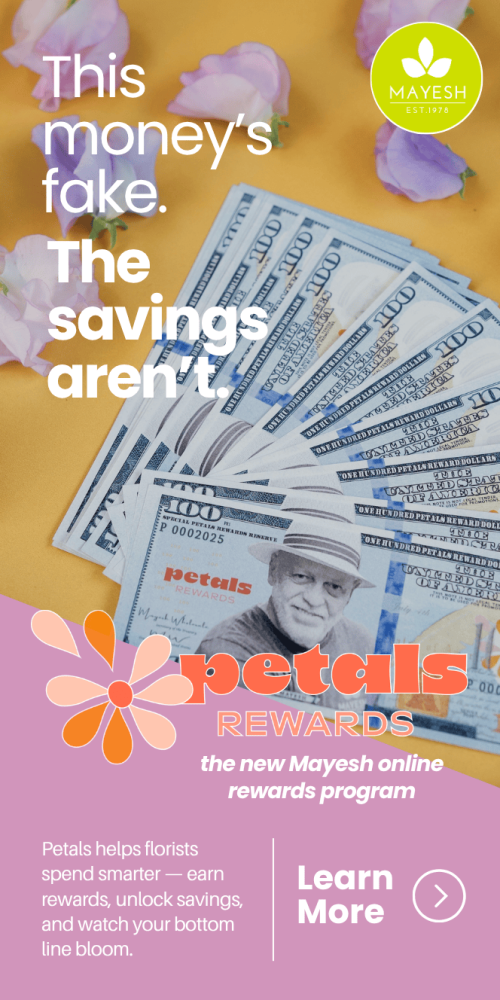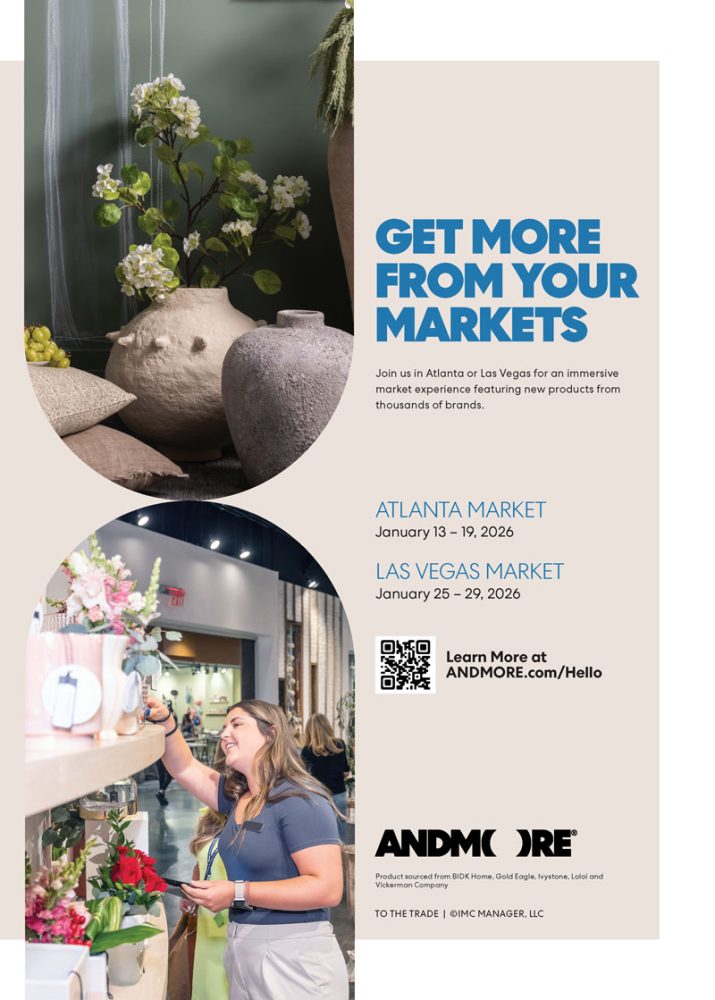“Casey Godlove, creative director, and Eric Mourkakos, founder – PlantShed New York”
we were intrigued. The press release announced the opening of PlantShed No. 3 on W. 96th Street at Broadway. We are talking really expensive New York real estate here! The release gave nods to two other stores, the flagship location, located since 1981 on the Upper West Side and store No. 2, which opened just over a year ago, a mile away on Columbus Avenue at 87th Street. Given reports of the sad state of retail and the closure of many brick-and-mortar floral shops, this fizzy news set me off in search of Eric Mourkakos, founder, and Casey Godlove, creative director, to find out how they discovered the mix that is making PlantShed a floral, creative and community success. Here are snippets of our telephone conversation.
How did you get into the flower business?
Casey: I grew up in Virginia surrounded by old American flowers. I cut them and brought them inside. Ultimately, I became a freelance event planner and floral designer and was hired, in 2011, at PlantShed. I stuck around, and I’m sure glad I did!
Eric: My grandparents, great aunts and uncles, and then my parents all had flower shops in New York and New Jersey. I grew up helping in family flower stores. I bought the store that is now PlantShed on the Upper West Side in 1981, and in 1990, we became the major fulfillment company for 1-800-Flowers. In 2009, we expanded PlantShed when I bought a local floral shop and garden center. I started thinking about transitioning out of the wire service, so we pushed hard to develop our own e-commerce from 2010 to 2012, developing a great website. We needed strong everyday business to afford us the flexibility to experiment, do other things, and get out of the fulfillment business.
Where does your business come from, and who are your customers?
Eric: It feels like it’s all over because we have lots of elements to our business but in reality, 30 percent of our business comes from the activities of our stores and the related e-commerce. The other 70 percent is a combination of our substantial event, party and corporate business.
Where and how do you buy your flowers?
Eric: We buy from all over the world, with the philosophy and goal of buying direct from farmers. We are sourcing as much as we can locally, with farmers providing us beautiful things from upstate New York, New Jersey and Connecticut. We have one person on our team who sources our floral and plant materials as 80 percent of his job.
How have you been so successful with what’s trending?
Eric: Here in NYC, people have small spaces, so a lot of what we sell is influenced by that. We developed a niche of styling windowsills, and it’s been so successful.
Casey: Plants have become big business for us, and apart from selling them, we offer design-centric workshops where we cover the basics and beyond. They’re taught by industry-leading horticulturists, floral and interior designers, and industry influencers; our customers love them.
Eric: Our floral arrangements are composed of the best quality flowers, which we guarantee to last 10 days. The styling is classic and timeless and speaks to all of the senses. We have an amazing floral design team, and this combination has allowed our in-store and e-commerce sales to boom. Then people ask us to do their corporate spaces and events, family weddings and homes, their balconies and gardens and we have been successful in following their trust and needs.
Casey: We spend time listening, and when we are asked about something by 10 people, we know we will see it in a magazine next week, and that’s your trend!
Eric: Then there’s coffee! I had the idea of flowers and coffee for a long time. There’s a culture associated with buying and drinking coffee, which I knew would line up with the beauty and emotional activity of buying plants and flowers. We wanted to expand our retail, and now two of our stores have this coffee and small plate component. It’s really working. People are looking for living-in-the-moment experiences and are really liking to watch the operational activities of a floral shop.
What’s the biggest challenge to your business? What will be your business focus in the next year?
Casey: Millennials are moving to big cities like New York, and they’re bringing their desire for things natural and green with them. We want to respond to that growing market.
Eric: We are in a growth period, and I don’t want to lose focus on quality, durability and customer service, so I’m going to stay focused on that.
If you could go anywhere in the world to learn more about the business of flowers, where would you go?
Casey: There’s interestingly cool stuff coming out of Denmark, and I’d love to go to Costa Rica to see the scale of big plants in that natural habitat.
Eric: I’ve never been to Asia, and the floral design and tearooms of Japan are calling me.























